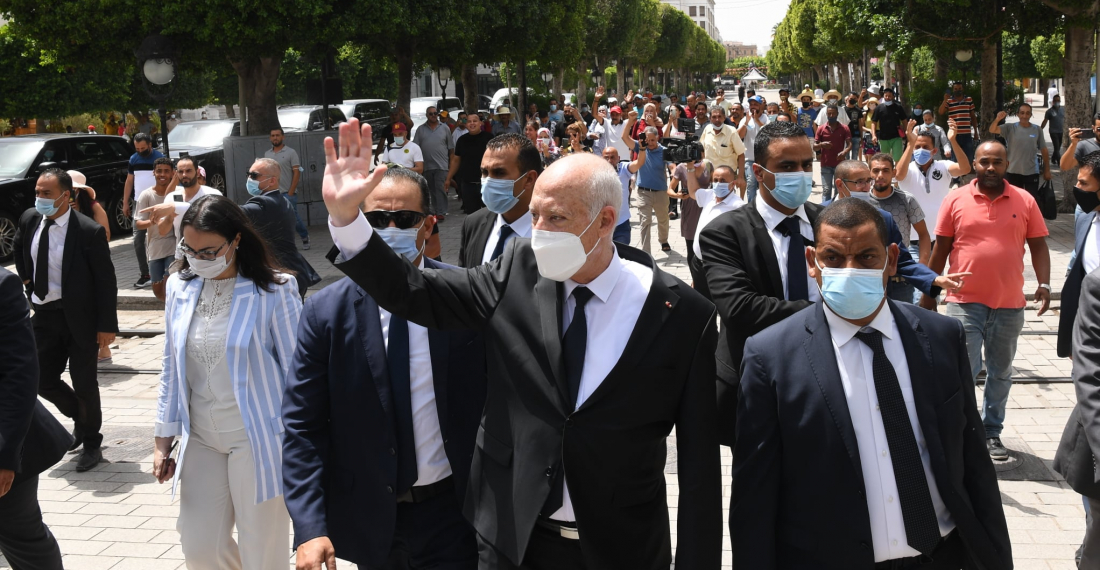Three Tunisian members of parliament were arrested in recent days following criticism of President Kaïs Saïed's invoking of a 'national emergency' to suspend the Tunisian parliament, remove the prime minister and lift lawmakers' parliamentary immunity on 25 July. The arrests take place as the country waits for President Saïed – who currently holds all executive power – to name a new prime minister.
The most recent arrests are of two deputies from the Islamo-nationalist movement, Al Karama – an ally of the largest party, Ennahda – announced its leader, Seifeddine Makhlouf, on Sunday (1 August). Maher Zid and Mohamed Affes are in pre-trial detention as part of a “military justice investigation”, Makhlouf explained on Facebook. Zid and Affes have reportedly been arrested in connection to an altercation in March known as the 'airport affair', where they were accused of insulting border police that had forbidden a woman from travelling. The arrests come after Al Karama referred to Saïed's recent moves as a “coup d'etat”.
On Friday (30 July), the independent MP and blogger, Yassine Ayari, was also arrested pursuant to a two-month prison sentence passed in late 2018 for speaking critically against the army. The arrest happened after he referred to the president's moves of 25 July as a “military coup”.
Human Rights Watch’s (HRW) deputy director for the MENA region, Eric Goldstein, stated in a tweet that Ayari's arrest “confirms fears that when President Saied seized extraordinary powers, he'd use them against his critics”.
The arrest of blogger & parliamentarian Yassine Ayari & the interrogation of Ennahda members for "fomenting violence" confirms fears that when President Saied seized extraordinary powers, he'd use them against his critics. Those concerned about #Tunisia's democracy: Take note.
— Eric Goldstein (@goldsteinricky) July 31, 2021
Additionally, the Tunisian branch of the NGO Amnesty International also expressed its “concern” over Ayari's arrest, saying it “strongly condemns the trial of civilians in military courts and opinion trials of all kinds”.






